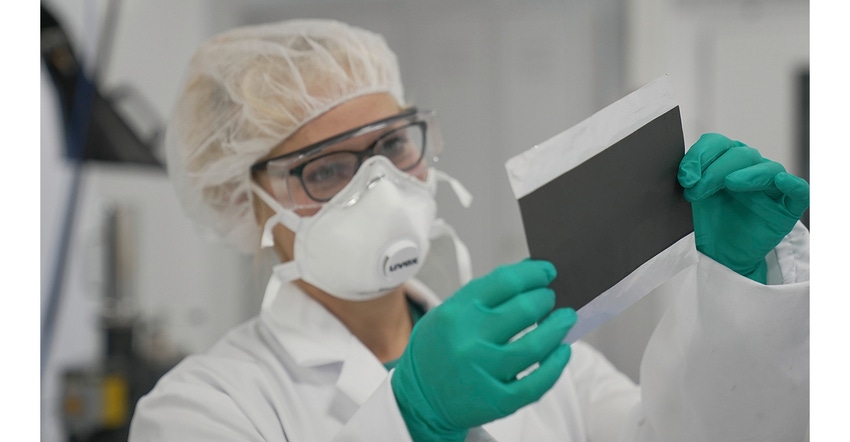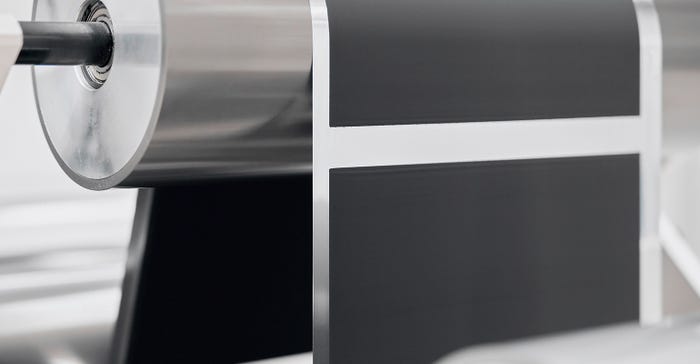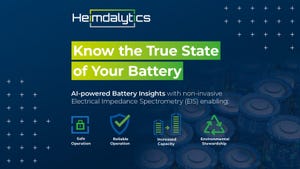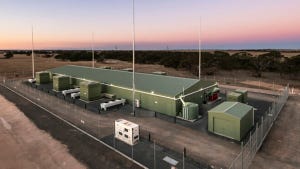VW, PowerCo Aim to Lower Battery Production Costs with Dry Coating
The process—similar to one Tesla is pursuing—is expected to reduce energy consumption in cell manufacturing by 30%, enabling the price of EVs to decrease by several hundreds of dollars per vehicle.

PowerCo SE, a subsidiary of Volkswagen Group and based in Salzgitter, Germany, plans to introduce a new manufacturing process for battery cell production. The process, called Dry Coating, aims to significantly improve efficiency and sustainability in volume battery cell production. The company stated that its internal tests have already shown successful results, with a 30% decrease in energy consumption. PowerCo has partnered with German printing machine specialist Koenig & Bauer AG to further develop and industrialize the Dry Coating procedure.
PowerCo and Koenig & Bauer have signed a Joint Development Agreement to develop a roller press for powder coating electrodes on a large industrial scale. The Dry Coating procedure eliminates the need for wet-coating and subsequent drying, which are energy-intensive and costly processes. PowerCo is currently testing and optimizing the technology in a pilot line in Northern Germany, while Koenig & Bauer will develop a machine for industrial powder coating.
30% less energy; 15% less floor space needed
The new technology is expected to save approximately 30% of energy and 15% of floor space, leading to significant cost savings. PowerCo estimates potential savings of hundreds of millions of Euros annually. Frank Blome, CEO of PowerCo SE, describes Dry Coating as a game changer that can provide a unique market position and competitive advantages if successfully scaled.
The German magazine, Spiegel, notes that as other companies are also researching production technology, an international race has emerged. Tesla CEO Elon Musk announced at Battery Day 2020 that they were working on a comparable process but pointed out significant challenges: the mass application of the process is very complicated. According to media reports, Tesla is still facing difficulties that have not yet been resolved.
Dry-coating process and advantages
The Dry Coating procedure involves calendering powdery basic materials directly onto a foil, similar to a printing procedure, eliminating two steps in electrode manufacturing. This allows for a thin and even powder coating, resulting in excellent spatial energy density, long battery life, and improved fast-charging ability.
The technology also offers environmental benefits. It reduces floor space requirements and eliminates the need for energy-intensive drying furnaces and suction systems, leading to significant energy savings. Chemical solvents, which require costly recycling, are no longer necessary.

Koenig & Bauer: From printing presses to cell production
Koenig & Bauer is better known as a leading printing press manufacturer. It brings expertise in technologically innovative and cost-efficient printing systems to the partnership.
Thomas Schmall, VW’s technology chief, who also chairs PowerCo, described the dry-coating process to Bloomberg as being “like printing a newspaper. It takes out the liquid in the chemistry, which means you can cut out all ovens in the process. We are doing this with a German company called Koenig & Bauer, a company focused on rolling machines for newspapers. Who is still reading paper newspapers these days? I am, but I am one of the last ones. So, in the future, they will probably make equipment for cell production.”
The development of the processing technology is expected to be completed by the end of 2024, with exclusive rights agreed upon for the future. Production is estimated to begin in 2026/2027.
About the Author(s)
You May Also Like





